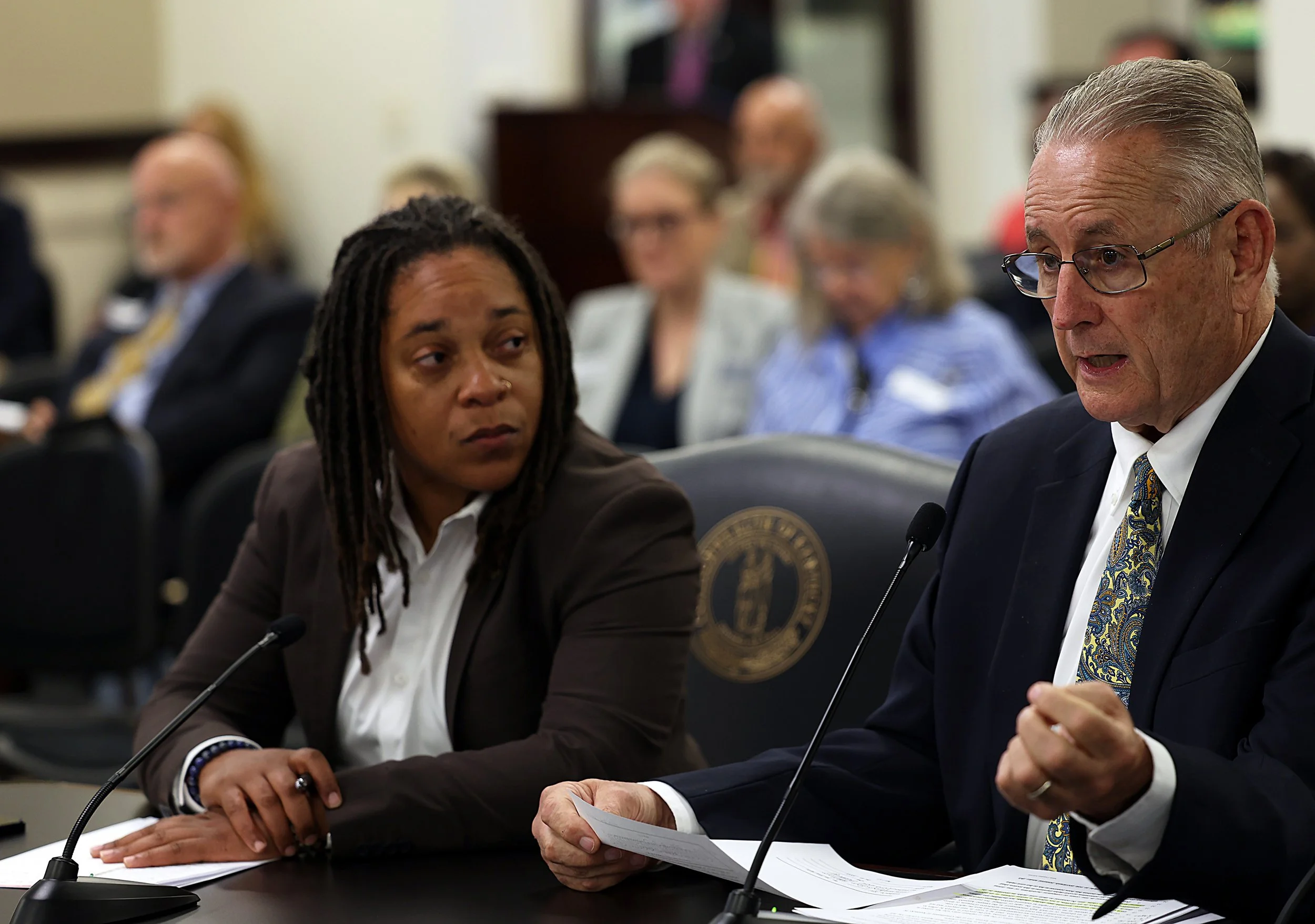SENATORS HIGDON AND HERRON LEAD BIPARTISAN EFFORT ON RESTORATION OF VOTING RIGHTS
FRANKFORT, Ky. (Aug. 26, 2025) — Sen. Jimmy Higdon, R-Lebanon, joined Sen. Keturah Herron, D-Louisville, before the Interim Joint Committee on Local Government on Tuesday to testify in support of a bipartisan constitutional amendment proposal that would restore voting rights to certain Kentuckians who have fully paid their debt to society.
If adopted by Kentucky voters, the proposed amendment would restore voting rights to individuals who have completed their prison, probation, and parole terms, while maintaining strict exclusions for the most serious crimes.
Higdon, who has worked on versions of this measure since 2020, emphasized that the proposal is about fairness, accountability, and constitutional clarity.
“This effort is not about being soft on crime. I’ve always been tough on crime, and we need to continue to be,” Higdon said. “But once someone has served their sentence, completed probation or parole, and paid their debt in full, I do believe it’s time to let them move forward with their lives when they’ve shown they have learned from the mistakes of their past.”
Herron noted the importance of making Kentuckians whole again once their time has been served.
“Restoring voting rights is about recognizing the humanity of people who have served their time and are ready to fully return to their communities,” Herron said. “No one should lose their voice in our democracy forever because of a mistake in their past. By making restoration permanent, we affirm the values of fairness, accountability, and second chances, and we strengthen Kentucky by ensuring every eligible voice can be heard at the ballot box.”
Last session, Higdon introduced Senate Concurrent Resolution 89 (SCR 89), with Herron serving as the primary Senate co-sponsor. The resolution was a part of the ongoing effort to examine Kentucky’s voting rights restoration process. The intent was to make sure any constitutional or statutory changes were approached cautiously, with accountability and election integrity at the forefront. Although SCR 89 did not advance, it reflected their shared belief that Kentuckians who have paid their debt should have a fair and responsible path to redemption.
Before her election to the Kentucky General Assembly, Herron served as a policy strategist with the American Civil Liberties Union (ACLU) of Kentucky, where she focused on expanding voting rights and advancing reforms in the criminal legal system. Since taking office, Herron has continued that work by filing and co-sponsoring legislation each year to restore voting rights, while also building bipartisan partnerships to move the issue forward.
Higdon also noted that Senate Bill 62, a similar proposal he introduced, passed the Senate 29–7 with bipartisan support in 2020. The bill stalled when the session was cut short by the COVID-19 pandemic.
During testimony, Sen. Greg Elkins, R-Winchester, sought clarity on the difference between automatic expungement and the proposed constitutional reform.
Higdon and Herron explained that expungement erases a conviction and restores all rights, including voting and firearm ownership, but applies only to certain lower-level offenses. The proposed amendment, by contrast, would not erase the conviction but would narrowly restore the right to vote once the sentence, probation, and parole are fully completed.
Strict exclusions would apply for crimes such as treason, election fraud, sexual offenses, and crimes against children—language similar to Higdon’s 2020 bill, which also barred violent offenses and replaced outdated constitutional terms with modern definitions.
Senate Majority Caucus Chair Robby Mills, R-Henderson, noted the importance of ensuring election-related crimes are highly scrutinized in the proposal, and asked whether newer offenses, such as tampering with voting equipment, would be excluded.
Higdon said his past proposal addressed bribery in an election, but agreed there may be a need to broaden the language to ensure that all election-related crimes are disqualifying.
Both senators emphasized that rights restored by executive order can be altered with changes in administration, whereas a constitutional amendment gives Kentuckians themselves the ultimate say.
If approved by three-fifths of both the Senate and the House of Representatives, the measure would then appear on the ballot for voters to decide in a statewide election. If adopted by a majority of voters, Section 145 of the Constitution of Kentucky would be amended.
###
For more information on Sens. Jimmy Higdon and Keturah Herron, and to access high-resolution photos, please visit legislature.ky.gov.

